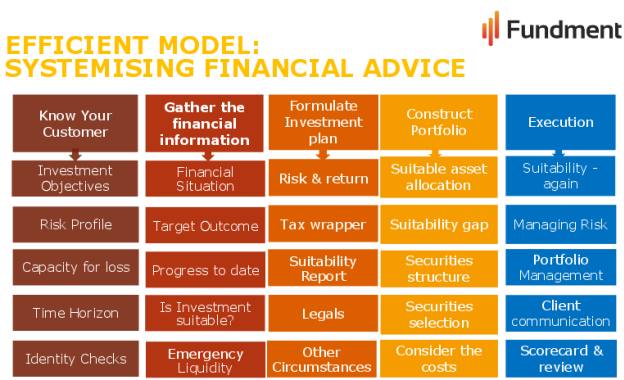

Robo-advice and the drive to automation would still have happened even without the catalyst of the Retail Distribution Review, experts have claimed.
Steve Thomas, professor at Cass Business School, said the disrupting advance of technology would have still forced a change in the financial services sector, even if the RDR had not taken place.
Speaking at a Cass Business School breakfast briefing in London, called 'The New Adviser in a Post-RDR World', Mr Thomas said financial services firms would have always had to think harder and smarter about adapting with the technology.
His comments were echoed by those of Ola Abdul, chief executive of Fundment, who told advisers it was important for them to go digital in this post-RDR world.
He highlighted how the advisory marketplace had shrunk from approximately 200,000 advisers in the UK in 1990 to approximately 25,000 qualified regulated financial advisers today.
"Three years on since the RDR, we need to think seriously about advice propositions. Given these figures [on the number of financial advisers today] this would equate to 1,000 potential clients for every financial adviser.
"That is, if the financial adviser has the sufficient technology that would enable their firm to back up their advice propositions with the necessary scale."
According to Mr Abdul, whose firm launched a discretionary fund management proposition and an advisory platform earlier this year that can be white-labelled by financial advisers, wealth management still relies "too heavily" on face to face advice.
He said advisers might be using tools for their own benefit, but they still do not use technology in a way that can engage with the client.
"We have not thought enough about using technology within a regulated advice environment. Post-RDR, we need to improve the economics of financial advice.
"Firms should look at how they can use technology to improve all their various interconnected activities - from know your client (KYC) and assessing suitability through to relationship management.
He showed delegates an 'efficient model' process whereby financial advice can be systemised, getting clients and new prospects to engage and complete many of the KYC and information gathering themselves.

Better tech platforms can then be used to underpin everything the adviser does, in relation to the process of investment plans, portfolio construction and execution, Mr Abdul said.
"All of these things can be put into an easy-to-understand automated architecture. Going digital is more than having a website or using tools. It's about having a systematic digital structure in place to help you do business, meet and control your clients' expectations, to be flexible and ready for more industry-defining regulation to come", he added.
Also at the event, Colum Wilde, managing director of CleverAdviser Technology, unveiled plans to bring the firms' rules-based investment process to the retail funds market in March next year.
CleverAdviser, which removes "human emotion" from the investment decision-making process, has created a rules-based investment process that combines pricing logic and computer-based mathematical algorithms to make "rational decisions" about buying, holding, or selling funds.
Mr Wilde said: "The process can limit losses, running the winners and cutting losses, free from human bias, meaning the IFA can be more focused on the
The service, which can underpin a financial adviser's wealth management propositions, costs 0.15 per cent + VAT for registration and 0.15 per cent + VAT thereafter.
Regardless of how many switches the algorithms advocate that the adviser - after sign-off from the client - agrees to in a year, the cost will remain at 0.15 per cent.
However, Mr Wilde was keen to point out "this is not a hot money process. The average holding time of a fund is 18 to 20 months".
"It's a visible, repeatable, profitable process which enables stickability between you and your clients", he said.
In March 2017, CleverAdviser will be creating funds that are based on this process.



